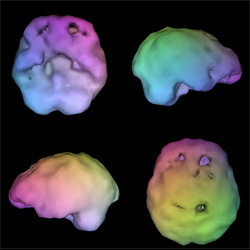Nation-wide support for re-classification...
Issue #6
If the FDA takes action which will reduce or eliminate patient’s access to this device, many patients will suffer needlessly and will be forced to return to dependence on analgesic, anxiolytic, or antidepressant medications.
- Dr. Harbin (excerpt from letter)
Recently the FDA published a Proposed Rule in the Federal Register regarding cranial electrotherapy stimulation (CES) and opened a 90 day public comment period on CES. This rule would require Pre-Market Approval (PMA) for CES, while for the past 30 years CES devices have been legally cleared to market in the USA by the FDA. At the end of this comment period the FDA will issue a final rule which will either down classify CES to Class II or will call for all CES manufacturers to prepare PMA Applications. To view the FDA docket including proposed rule, please click here.
Approved for over the counter sales in Europe, China and Canada, the Alpha-Stim devices have gone through an extensive review process for the FDA six times since 1981 and have been cleared to market.
The response we received in support of down-classification is astounding! We would like to take this opportunity to share some of the letters with you. These doctors, patients, chaplains, and military personnel have great stories about the results they have received from using the Alpha-Stim in their practices and at home.
Please review some of these astounding letters, so you can see why we are energized to continue the "good fight" and explain what a valuable tool Alpha-Stim is for practitioners.
Please review some of these astounding letters, so you can see why we are energized to continue the "good fight" and explain what a valuable tool Alpha-Stim is for practitioners.
The Military and Alpha-Stim...
We are pleased to have new survey data from the military. Military Personnel Survey Analysis Summary, written by Larry Price, PhD., is a must read and a great breakdown of the effectiveness of Alpha-Stim among our different indications with or without medication. Click Here for the full version of the survey.



